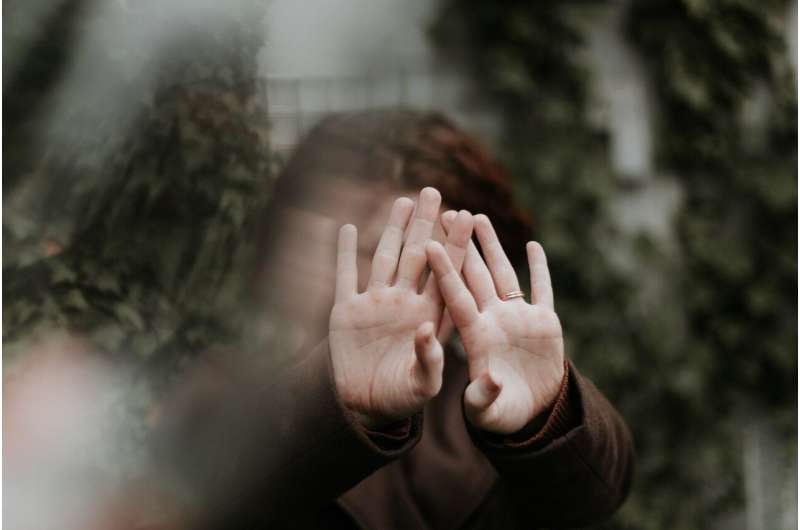Religious violence increases anxiety among Muslims and Jews, even if they have never been personally targeted
Fear of hate crime looms especially large in the minds of Jews and Muslims, even if they have never been personally targeted, according to a new study from Rice University and West Virginia University.
“Fear of Religious Hate Crime Victimization and the Residual Effects of Anti-Semitism and Islamophobia” appears in a recent edition of Social Forces.
Using data from the 2019 edition of the nationally representative Experiences with Religious Discrimination Study survey, the authors found that among religious groups, Jews and Muslims were most likely to express fear of being targeted. These concerns were explained in part by individuals’ personal experiences with being discriminated against, but also their knowledge of discrimination against close friends and family and their greater religious visibility (that is, they are more likely to wear outward symbols of their religion).
“While individuals’ fear of hate crime victimization might be partially explained by direct experiences, some of it is the result of historical and modern-day trauma suffered by religious peers,” said Chris Scheitle, a professor of sociology at West Virginia University and the study’s lead author.
“We attribute this residual fear to the deep-seated culture of anti-Semitism and Islamophobia within the U.S. and violence attributable to that culture, as well as the collective memory of historical religion-based victimization of Muslim and Jewish communities,” said co-author Elaine Howard Ecklund, director of Rice’s Boniuk Institute for the Study and Advancement of Religious Tolerance.
Scheitle and Ecklund said they hope the findings will influence public policy efforts targeting religious victimization and its impacts.
More information:
Christopher Scheitle et al, Fear of Religious Hate Crime Victimization and the Residual Effects of Anti-Semitism and Islamophobia, Social Forces (2022). DOI: 10.1093/sf/soac100
Citation:
Religious violence increases anxiety among Muslims and Jews, even if they have never been personally targeted (2022, December 5)
retrieved 5 December 2022
from https://phys.org/news/2022-12-religious-violence-anxiety-muslims-jews.html
This document is subject to copyright. Apart from any fair dealing for the purpose of private study or research, no
part may be reproduced without the written permission. The content is provided for information purposes only.

Fear of hate crime looms especially large in the minds of Jews and Muslims, even if they have never been personally targeted, according to a new study from Rice University and West Virginia University.
“Fear of Religious Hate Crime Victimization and the Residual Effects of Anti-Semitism and Islamophobia” appears in a recent edition of Social Forces.
Using data from the 2019 edition of the nationally representative Experiences with Religious Discrimination Study survey, the authors found that among religious groups, Jews and Muslims were most likely to express fear of being targeted. These concerns were explained in part by individuals’ personal experiences with being discriminated against, but also their knowledge of discrimination against close friends and family and their greater religious visibility (that is, they are more likely to wear outward symbols of their religion).
“While individuals’ fear of hate crime victimization might be partially explained by direct experiences, some of it is the result of historical and modern-day trauma suffered by religious peers,” said Chris Scheitle, a professor of sociology at West Virginia University and the study’s lead author.
“We attribute this residual fear to the deep-seated culture of anti-Semitism and Islamophobia within the U.S. and violence attributable to that culture, as well as the collective memory of historical religion-based victimization of Muslim and Jewish communities,” said co-author Elaine Howard Ecklund, director of Rice’s Boniuk Institute for the Study and Advancement of Religious Tolerance.
Scheitle and Ecklund said they hope the findings will influence public policy efforts targeting religious victimization and its impacts.
More information:
Christopher Scheitle et al, Fear of Religious Hate Crime Victimization and the Residual Effects of Anti-Semitism and Islamophobia, Social Forces (2022). DOI: 10.1093/sf/soac100
Citation:
Religious violence increases anxiety among Muslims and Jews, even if they have never been personally targeted (2022, December 5)
retrieved 5 December 2022
from https://phys.org/news/2022-12-religious-violence-anxiety-muslims-jews.html
This document is subject to copyright. Apart from any fair dealing for the purpose of private study or research, no
part may be reproduced without the written permission. The content is provided for information purposes only.
